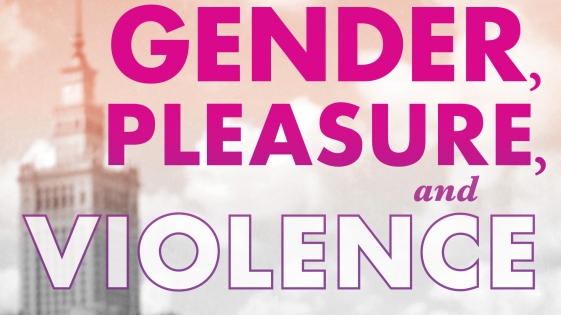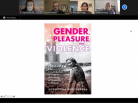Dyskusja o angielskim wydaniu książki dr hab. prof. UW Agnieszki Kościańskiej "Płeć, przyjemność i przemoc"

15 listopada br, w czasie zjazdu Association for Slavic, East European, and Eurasian Studies, odbyła się dyskusja o angielskim wydaniu książki dr hab. prof. UW Agnieszki Kościańskiej Płeć, przyjemność i przemoc (Gender, Pleasure, and Violence: The Construction of Expert Knowledge of Sexuality in Poland, Indiana U Press, 2021, więcej informacji o książce)
O książcze dyskutowali Emily Rebecca Gioielli (Pasts Inc: Center for Historical Studies, Central European University), Melissa Feinberg (Rutgers, The State U of New Jersey), Agnieszka Koscianska (Univeristy of Warsaw, Poland), Anita Kurimay (Bryn Mawr College), Richard Mole (U College London, UK) oraz publiczność.
About the event:
This roundtable brings together leading experts on sexuality and gender in Eastern Europe to discuss Agnieszka Koscianska’s "Gender, Pleasure, and Violence: The Construction of Expert Knowledge of Sexuality in Poland" (English edition: Indiana University Press, New Anthropologies of Europe Series, forthcoming 2020; Polish edition: The University of Warsaw Press 2014), which is the first work to critically analyze the history of sexuality in Poland under socialism and postsocialism. The book shows the development of expert knowledge of sexuality, especially sexological knowledge, from the late 1960s to present and argues against thinking about Eastern Europe under communism as a space without creativity that should transform and “catch up” with the West. It also destabilizes our ideas about the recent history of sexuality whereby constant progress in all areas of sexual and gendered rights has been the order of the day since WWII. While under socialism citizens undoubtedly suffered from an oppressive totalitarian system, the politics of sexuality and gender were in many ways progressive and contrasted sharply—and often in surprising ways—with those of Western countries. At the same time, however, gender stereotypes flourished and women were blamed for provoking men’s sexual aggression. The collapse of socialism brought both restrictions in gender and sexuality rights (such as new anti-abortion laws, the reinforcement of the Catholic Church, and the commodification of sex) and new opportunities (the development of feminist and LGBTQ movements, new gender roles like stay-at-home-fathers and career-oriented women). Więcej




